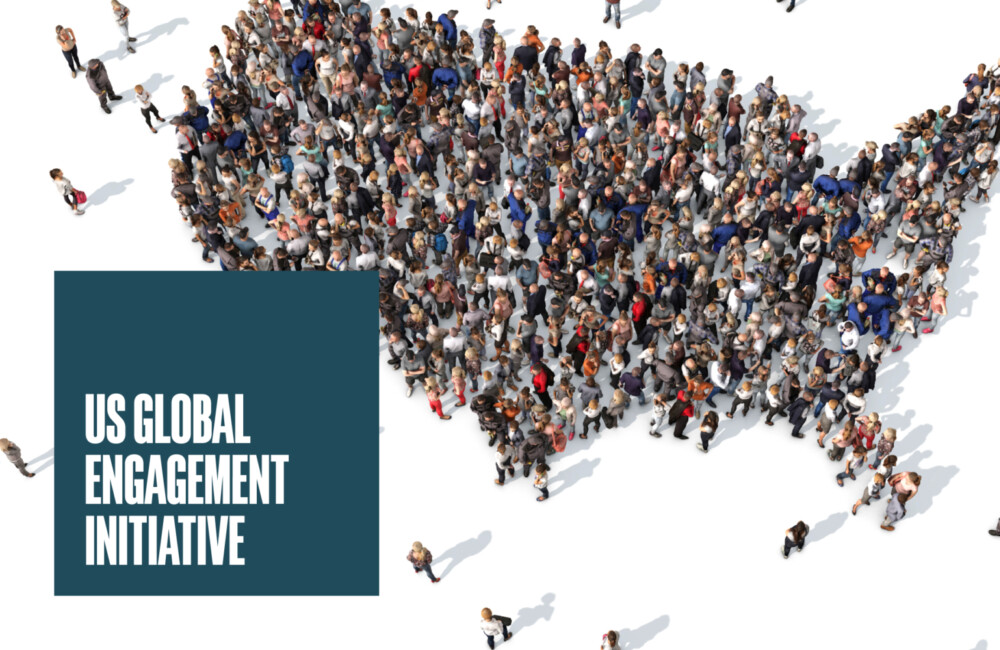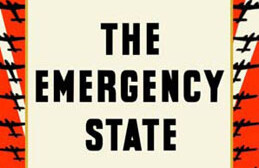Framing ethical perspectives
Multilateralism refers to a group of nations working together for a common goal. It is at the heart of international relations as nation-states form alliances with like-minded countries to take on global issues, such as climate, emerging technology, inequality, and collective security. Carnegie Council sees multilateralism as essential to generating solutions to global problems and a critical component of an ethical present and future.
Featured Multilateralism Resources
Inclusivity, AI & climate governance, and more
FEB 27, 2024 • Video
A Carnegie Council Conversation with the UK Home Secretary
MAR 28, 2024 • Video
Unlocking Cooperation: The Global South and Global North
In the inaugural panel of the "Unlocking Cooperation" series, Ramu Damodaran leads a discussion on forging a path forward for Global South/North collaboration.
OCT 18, 2023 • Video
Unlocking Cooperation: A Global Ethics Day Special Event
In this keynote event for Global Ethics Day 2023, Carnegie Council President Joel Rosenthal led a conversation on the psychology behind cooperation; ways that states, institutions, ...
Subscribe to the Carnegie Ethics Newsletter for more on ethics and international affairs
Related Initiatives
Model International Mobility Convention
The primary goal of the Model International Mobility Convention (MIMC) is to formulate new rules for migration and asylum that can benefit both migrants and refugees as well as their states of origin, transit, and destination.
Carnegie Ethics Accelerator
The Carnegie Ethics Accelerator is a new kind of incubator designed to empower ethics in the face of swiftly evolving challenges in technology and public policies.
Explore Our Multilateralism Resources
APR 9, 2012 • Podcast
No One's World: The West, the Rising Rest, and the Coming Global Turn
How do we manage a world where no one power is dominant, and emerging powers have their own views about how to organize political, social, ...

MAR 29, 2012 • Article
Russia Bulletin (2012): Russia Bulletin, Issue 5
Jackson-Vanik, enacted during the Cold War by the U.S. to restrict trade with the Soviet Union, remains on the books almost 40 years later. Will ...

MAR 19, 2012 • Podcast
Iran: A Diplomatic Solution
In this knowledgeable and detailed talk, Ambassador Pickering cuts through the current hysteria about Iran, stressing that we still have time for diplomacy. In fact ...

MAR 13, 2012 • Article
In A G-Zero World, It's Every Nation For Itself
The new book by Carnegie Council Trustee Ian Bremmer provides a fresh perspective on world politics, writes reviewer Devin Stewart. Some of his conclusions are ...
MAR 13, 2012 • Podcast
The Responsibility to Protect: A New International Norm?
What is Responsibility to Protect exactly? Dutch Ambassador Herman Schaper gives an expert talk on how it developed, how it is defined, how it was ...

MAR 12, 2012 • Podcast
The Oil Curse: How Petroleum Wealth Shapes the Development of Nations
According to Michael Ross, it's no coincidence that major oil-producing countries have less democracy, fewer opportunities for women, more frequent civil wars, and more volatile ...

MAR 9, 2012 • Article
Russia Bulletin (2012): Russia Bulletin, Issue 4
What's the real deal on the elections? What of Kremlin attacks on election monitors and protestors? How will the United States and the West best ...

MAR 2, 2012 • Podcast
The Emergency State: America's Pursuit of Absolute National Security at All Costs
David Unger argues that because of national security fears, the U.S. has bypassed its Constitution, creating an "emergency state." The result is excessive military ...
MAR 2, 2012 • Podcast
Global Ethics Corner: A Force for Good or Evil? Google Maps and Border Wars
Border disputes have been around for thousands of years, but in the age of Google Maps, they are taking on another dimension. Does Google bear ...

FEB 22, 2012 • Podcast
Ethics Matter: Policymaker and Scholar Anne-Marie Slaughter
Anne-Marie Slaughter on the responsibility to protect: "I believe in a values-based foreign policy and looking to cooperate as often as I can. I also ...




